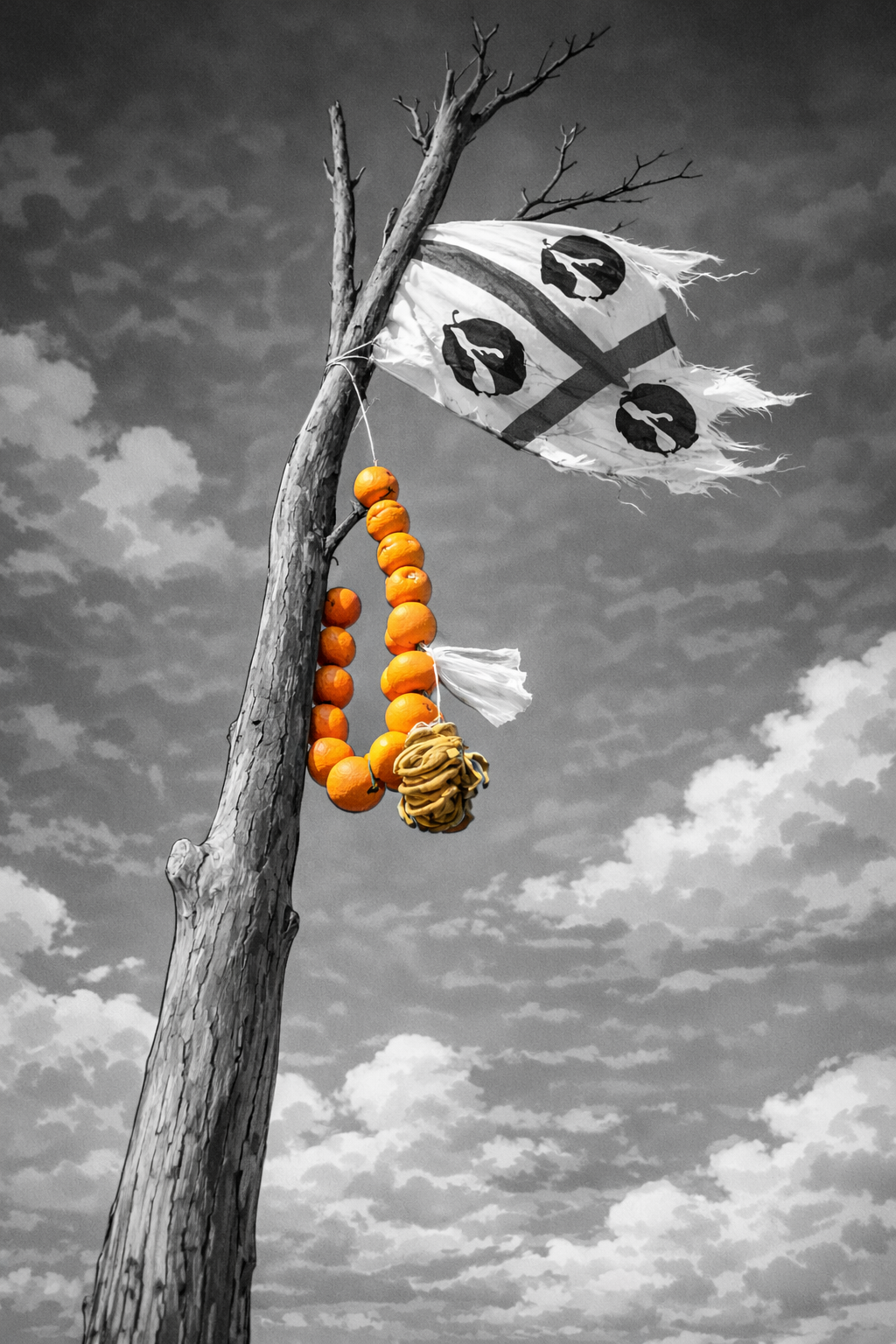They say history repeats itself. And it really does, always in the same way, even though the actors change. It’s like a soap opera that has been running for millennia, where the dialogues and debates are, at their core, always the same.
Sardinia has always been a land of exploitation: from the Romans, who turned it into an agricultural colony to supply grain to the empire’s provinces, to the Italian peninsula, which only remembered it when the Savoy power needed a royal title to establish itself politically as the “Kingdom of Sardinia.” Then came World War I, when the Brigata Sassari, a formation of Sardinian soldiers renowned for their resilience and spirit of sacrifice, was never properly recognized by the Italian government or official history. (Oh well, at least they got a statue in Piazza San Carlo in Turin, so moving.)
But monuments and other useless gestures aside, the island was treated like a mine: drained of every last resource, then left barren and forgotten.
And today, just to stay true to the saying that history repeats itself, we have yet another wave of scavengers eager to take without giving, to reap benefits without paying, while still enjoying its resources. The modern version of this exploitation? Wind farms, justified by the rhetoric of climate change.
A rhetoric that is even making its way into schools: in Siniscola, a town in the province of Nuoro, men dressed as Robin Hood showed up for a “special” lesson, essentially an attempt to indoctrinate young students into believing that installing wind turbines is necessary to save us from catastrophe and create new jobs for the island.
The idea is more or less this: to place (many) wind turbines as tall as skyscrapers across Sardinian countryside and coasts, inevitably ruining landscapes and the harmony of the territory, all under the excuse of promoting the energy transition, something that is necessary if we don’t want to die from the heat caused by global warming.
Now, climate change is a very serious problem, and anyone who denies it has even bigger problems, but the wind turbines these vultures are talking about wouldn’t benefit the Sardinians themselves, who already pay significantly higher electricity bills than the rest of Italy, but rather other northern regions (of course).
Sardinia, in fact, already produces over 40% more energy than it actually needs, but much of this energy is exported.
The vultures tell us that one of the problems is that most of Sardinia’s energy comes from coal-fired power plants, which is true. But it’s also an energy that the island doesn’t even need: if Sardinia were no longer exploited to supply other regions, it could afford to rely almost entirely on renewable energy (without the need to install new wind turbines).
Despite this, Terna informs us that there are already over 800 grid connection requests in Sardinia for new wind projects. If they were all approved, the island would end up producing almost twelve times its actual electricity needs. (To put it simply: they’re asking for 58 GW of new installations, just for reference, France has around 20 GW and Portugal about 40 GW of energy from renewable sources.)
Meanwhile, as Sardinia serves as a battery for other territories, richer regions with a much higher energy demand, like Veneto, go about their business while producing far less than they consume.
It’s absurd, especially considering that, unlike other European countries, no cap has been set on the amount of power that can be installed or on how much land can be used for renewable energy.
There would be much more to say, but as it’s my area of focus, I will dwell on the anthropological aspect of the issue: social uprisings such as banditry and brigandage, although always categorized as expressions of a barbaric and uncivilized people, were actually the tragic result and response to exploitation and mistreatment by those in power.
When a proud people like the Sardinians are oppressed, invaded, and abused, sooner or later, they will find their own way to rebel, even if that seems shocking to those on the other side.
Preventing history from repeating itself and changing the course of events requires an enormous effort, and more often than not, the outcome is tragic.



